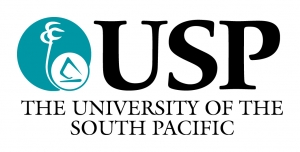The University of the South Pacific is the premier institution of higher learning for the Pacific region, uniquely placed in a region of extraordinary physical, social and economic diversity. Established in 1968, USP is one of only two universities of its type in the world. It is jointly owned by the governments of 12 member countries: Cook Islands, Fiji, Kiribati, Marshall Islands, Nauru, Niue, Solomon Islands, Tokelau, Tonga, Tuvalu, Vanuatu and Samoa. The University has campuses in all member countries. The main campus, Laucala, is in Fiji.
The University has set a high standard for quality in its research. Major research commitments include business management, teacher education, Pacific studies, marine studies, agriculture, science and technology.
As the premier institution of higher education in the South Pacific region, one of the core roles of the USP is producing and disseminating new knowledge via research and innovation.
The Institute of Applied Sciences (IAS) was established in 1977 and was formerly known as the Institute of Natural Resources. It belongs to the Faculty of Science, Technology and Environment (FSTE) of The University of the South Pacific (USP) and has 65 full time staff and its own accredited laboratories and scientific equipment. IAS is the research and consulting arm of the Faculty of Science, Technology & Environment: it capitalizes on its unique and recognized strengths to provides professional scientific services, research outputs and innovative approaches to meet the development needs and aspirations of the region. The research activities of the institute are carried out through research and development projects, consultancies and laboratory services. The institute is unique since it has access to all 12 island nations in the South Pacific region by the charter of the university.
The IAS of the University of the South Pacific will act as the local focal point for the PacMAN project, by contracting a full-time science scholar based at USP. This local project manager will help with the local coordination and communication, including (i) organization of meetings, (ii) training courses, (iii) writing progress reports, (iv) contributing to the monitoring plan and design of the decision-support tool and (v) organizing the field observations and sample processing. The laboratories and scientific equipment from USP-IAS will be made available to the PacMAN project. Any consumables and survey costs will be covered by the project.
